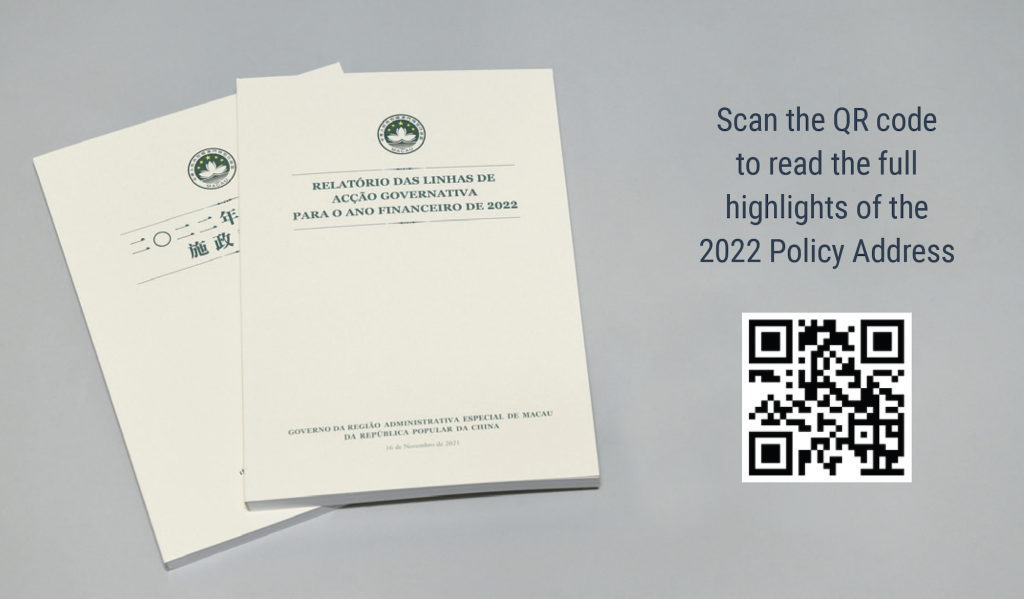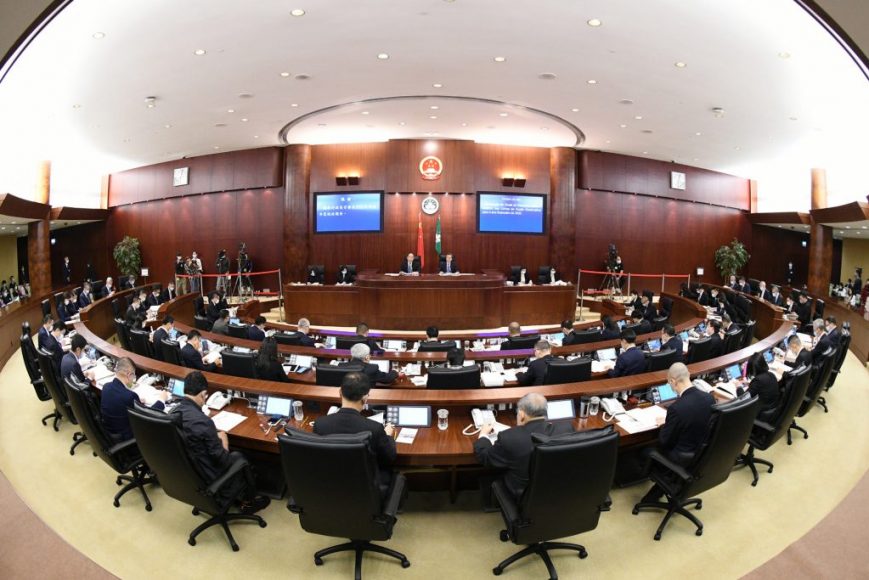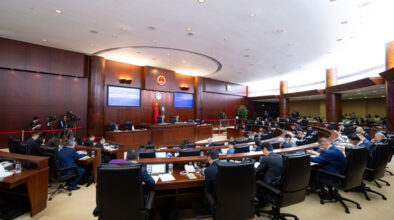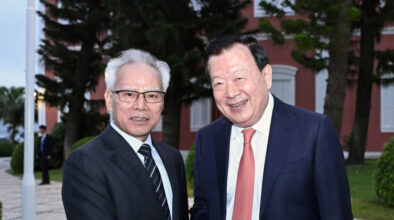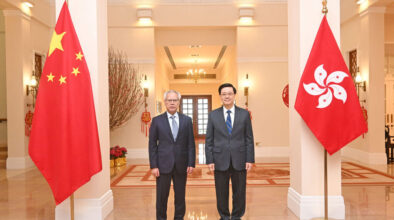A steady, stable path to long-term economic recovery is the way forward for Macao, according to the city’s Chief Executive Ho Iat Seng, as he outlined the government’s strategy for 2022 and beyond in his annual Policy Address to the region’s Legislative Assembly in November.
Ho stressed a twin-track approach based on continuing the government’s stringent approach to fighting the Covid-19 virus threat while simultaneously boosting Macao’s recovery through investment in economic diversification and closer partnership with the Guangdong-Macao Intensive Cooperation Zone in Hengqin to guarantee employment and prosperity in the longer term.
While Macao’s challenges are far from unique, the city is better placed than many others due to the strong support of China’s central government and the opportunities on offer from the development of the Guangdong-Hong Kong-Macao Greater Bay Area, according to the city’s leader. Ho also praised the efforts of Macao’s own people, whose resilience throughout the difficulties of the past couple of years has ensured social harmony and played a key part in achieving a partial economic recovery in 2021.
Looking ahead, Ho said that 2022 would be better than 2021 for Macao in terms of economic and social development, but complex challenges still need to be overcome, requiring a prudent yet active approach.
A key opportunity for the city, in Ho’s view, is Macao’s integration into China’s national development strategies, which have been outlined in the country’s 14th Five-Year Plan, and especially the SAR’s participation in the Greater Bay Area programme.
Opening up
Addressing the continuing threat posed by the pandemic, Macao will continue its efforts to raise the rate of Covid-19 vaccination among residents to build up herd immunity and allow the relaxation of entry restrictions.
Ho said that Macao would continue to bar entry to non-resident foreigners since the Chinese mainland would impose mandatory quarantine on arrivals from Macao if the city suffered new local Covid-19 cases following the lifting of the ban.
On average 350,000 people – such as residents, non-resident workers and visitors – travel between Macao and the mainland per day, totalling around 10 million travellers per month.
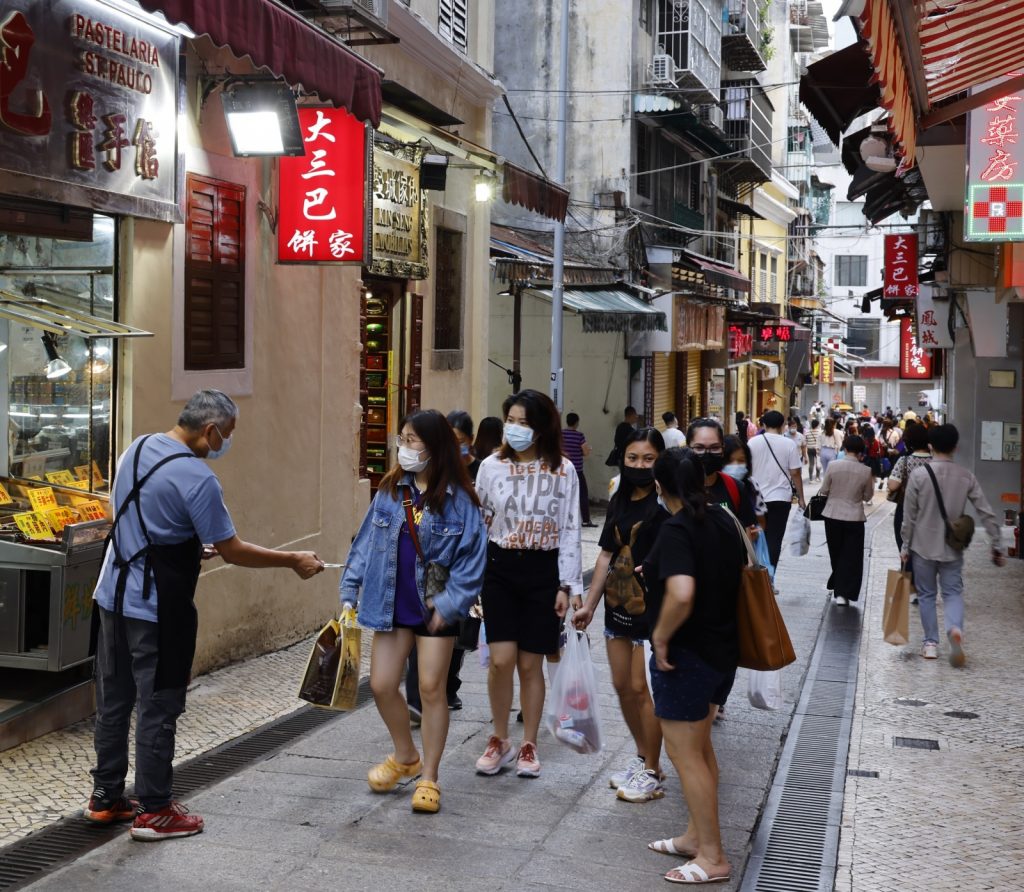
If the mainland imposed quarantine on all arrivals from Macao it would have an adverse effect on these daily commuters. Consequently, Ho said, whether or not to lift the entry ban on non-resident foreigners would be a “trade-off”.
Macao carries out its Covid-19 entry and quarantine measures in conjunction with the mainland, but maintains quarantine regulations for arrivals from Hong Kong, the
neighbouring Special Administrative Region. Ending quarantine depends on a common synchronised policy being adopted across the three relevant regions – Guangdong province, Hong Kong and Macao.
Macao’s target to achieve an 80 per cent Covid-19 vaccination rate – 62 per cent of the population has received both jabs as of 26 November – would allow the city’s government to ask the mainland authorities to resume the electronic visa application process for individual mainland citizens to visit Macao, as well as to resume group tours to the city, from selected provinces, autonomous regions and municipalities. These are matters under discussion with the Ministry of Culture and Tourism in Beijing.
The issuing of Individual Visit Scheme (IVS) Macao travel permits for all mainland citizens resumed in September last year though currently Chinese visitors must go in person to police service points to apply for the permit; previously applications could be made electronically at self-service kiosks. Ho believes that the resumption of electronic applications for the IVS travel permit would result in an enormous increase in the number of mainland visitors to Macao.
Ho believes that the resumption of electronic applications for the IVS travel permit would result in an enormous increase in the number of mainland visitors to Macao.
Hengqin to boost Macao Diversification
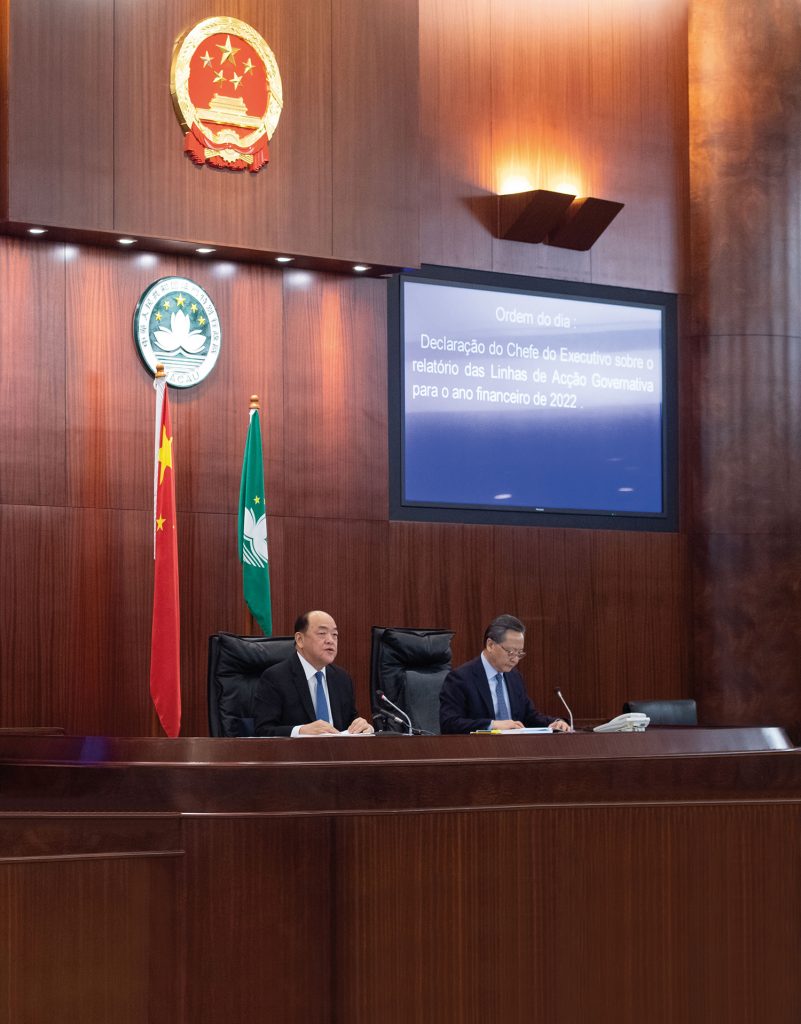
Chief Executive Ho pledged that the government will promote economic recovery and guarantee employment through a series of policies.
Macao will develop industries to accelerate economic diversification in 2022, while also consolidating and improving industries in which Macao has traditional advantages. This will create a diverse and sustainable industrial structure.
The Macao government aims to develop a comprehensive tourism and leisure industry, combining the different elements of dining, sightseeing, shopping, entertainment, medical services and sports. It will also nurture the “big health” industry starting with the research and manufacturing of Traditional Chinese Medicine, according to Ho.
In September, China’s central government issued a general plan for the development of the Guangdong-Macao Intensive Cooperation Zone in Hengqin , which is to be jointly administered by the Macao and Guangdong governments. Given the small size of Macao, this provides a major opportunity for the city’s businesses to expand and branch out into other spheres, and is also an innovative approach to the principle of “One Country, Two Systems” in practice.
Ho said that Macao will actively develop the cooperation zone in Hengqin, pledging to speed up the drafting of major policies, including special measures to relax market access in the cooperation zone, as well as compiling categories of authorised items and industries of interest.
Macao National Security Law Update
Macao introduced national security legislation, the Law on the Defence of National Security, in 2009. This was based on the requirement of Article 23 of the Macao Basic Law, which applies the “One Country, Two Systems” principle to the city. As a Special Administrative Region, Macao enjoys autonomy on most social and economic issues but the issues of foreign policy, defence and national security are the responsibility of the central government.
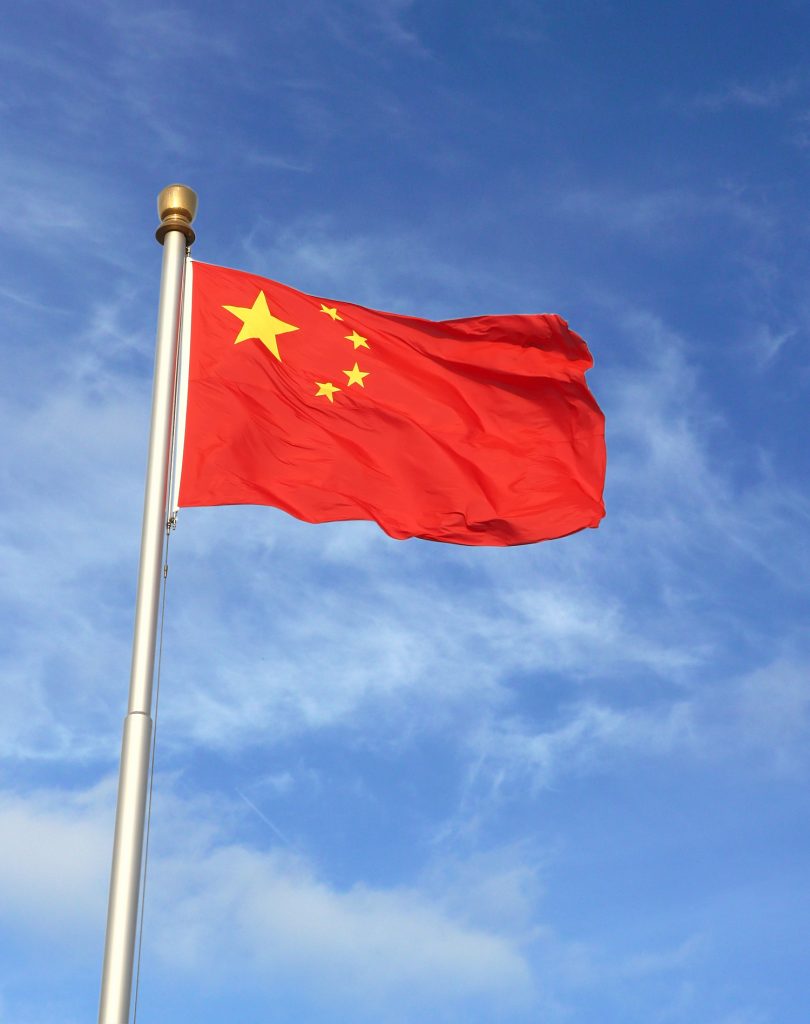
The local government plans to amend the 2009 national security law, due to changes in the international landscape and the new requirements on regional security over the past decade. A bill will be introduced into the Legislative Assembly next year for discussion and adoption.
Ho said that with a changed international situation, the adoption of China’s 2015 National Security Law and the introduction of Hong Kong’s National Security Law last year, Macao has to “move with the times” by updating its own national security legislation.
In his policy address, Chief Executive Ho said Macao will safeguard national security, upgrade the legislation, step up law enforcement and enhance liaison and cooperation with mainland cities.
The amended national security legislation will propose clearer and more precise rules and procedures, adding that the current version of the Law on the Defence of National Security is only written “in a general way”. “Due to the changes in the international landscape, we want the national security law to have more accurate wording,” Ho said.
The chief executive pointed out that Macao has never prosecuted anyone under the local national security law.
On international issues, Macao will also increase cooperation and exchanges with countries and regions along the “Belt and Road” in education, tourism, medical services, sports and culture and fully play its role as a link between China and Portuguese-speaking countries, Ho added.
Tech Upgrade
One of the key goals of the Macao government is to create a more diverse mix of industries in the city, overcoming its current reliance on gaming and tourism. In another meeting with lawmakers in the Legislative Assembly, Ho said the Concordia Industrial Park in Seac Pai Van will be transformed into a tech industrial park similar to Cyberport in Hong Kong.
“We can make use of this park as a science and tech hub. I hope work for this will progress quickly. When the urban master plan is concluded, we can advance our plans,” Chief Executive Ho said, adding that Macao’s urban development master plan could be approved by the end of this year.
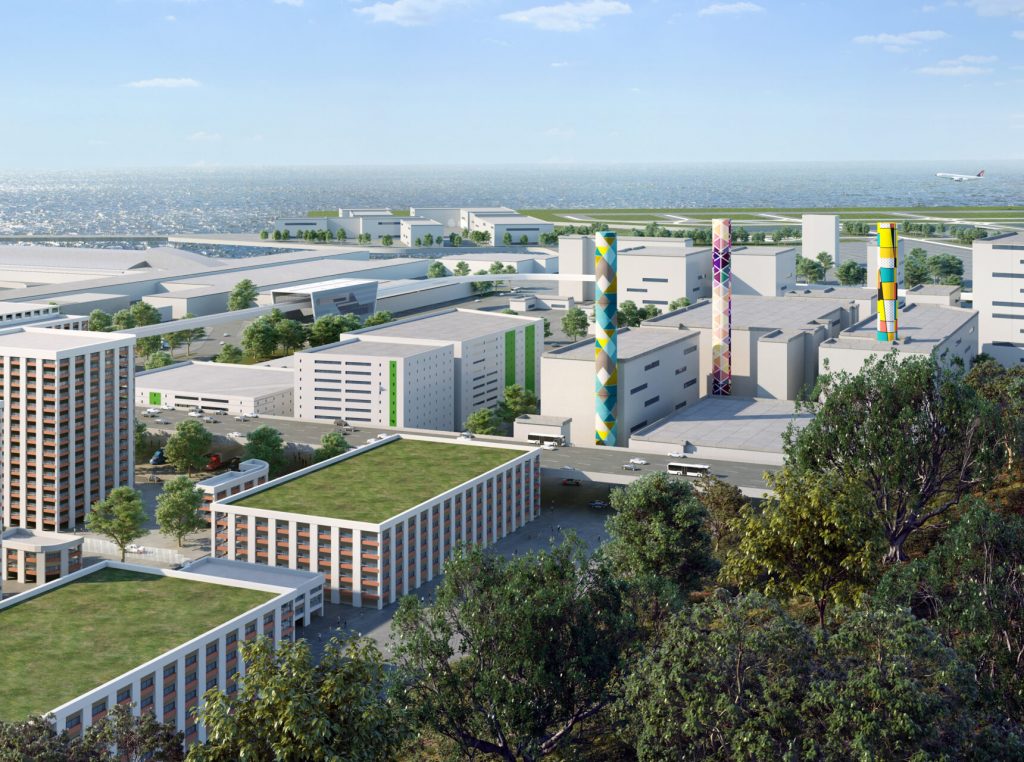
Concordia Industrial Park has hosted a string of new development projects. The Urban Planning Committee was recently asked to consider an increase in building height for 11 land plots occupying 12 hectares in Coloane.
The land plots at the park were initially earmarked for other projects but authorities now plan to develop cutting-edge industries in the area, including Traditional Chinese Medicine and a data centre.
China’s state-owned Nam Yue Group will take over an idle plot in the park to develop the Nam Yue Science and Technology Park. GDS Holdings, which develops and operates high-performance data centres, has also agreed to form a joint venture with a local partner to establish a data centre in the area.
“Macao does not have a real data centre. We are in the planning stage and there is already investment for [this project]. The park project will not just be to set up warehouses or office space, we hope to have a good data centre to ensure the safety of data transfers,” Ho added.
The chief executive said the industrial park would also develop the Traditional Chinese Medicine sector and that there had already been numerous requests for projects in this field.
The Future of 5G
Macao’s telecommunications sector is already being prepared for the arrival of 5G networks in the city. While a Telecommunications Law is planned for 2023, licences for 5G operators may be awarded in advance of the legislation.
“Macao’s first wave of 5G licences is set to be released as early as next year,” Ho told city lawmakers. Once the Telecommunications Law is in place – probably in the second half of 2023 – the government will then issue a convergence licence to the 5G operators. The government will also push for full fibre-optic coverage in new public buildings.
Ho added that the government will instruct a third party to assess telecom providers’ existing assets before issuing a 5G licence and that the 5G assets will become government-owned after the completion of the concession period, though it is currently unknown how long these concessions will run for.
In the past year, Macao’s largest telecom operator CTM invested MOP 625 million (US$78 million) in several projects, among them a 5G mobile network, an increase of MOP 385 million (US$48 million) compared to the previous 12 months.
Gaming Concessions May be Extended
While greater diversification remains the government’s chief goal, the gaming industry is still the city’s main economic pillar, employing tens of thousands of people and contributing a significant share of Macao’s GDP. The six existing gaming concessions and sub-concessions are due to expire in June 2022 and the government is also currently revising the legislation that oversees the industry.
Chief Executive Ho reassured the industry that the government would approach the expiration date flexibly. If the legal revision and preparation of future public tenders is not completed on time, the current concessions could be extended.
In 2002, the Macao government granted three casino-operating concessions and another three sub-concessions. The main licences are held by SJM Resorts, S. A., Wynn Resorts (Macau), S.A., and Galaxy Casino, S. A., while Venetian Macau Limited, MGM Grand Paradise, S.A., and Melco Resorts (Macau), S.A. hold the sub-concessions.
The maximum period for gaming concessions is 20 years, although authorities have the power to extend them by up to five years. At this juncture, the extension would be up to three years as previously the SJM Resorts concession, and MGM subconcession which was due to expire in 2020, was extended to 2022 to align with the others.
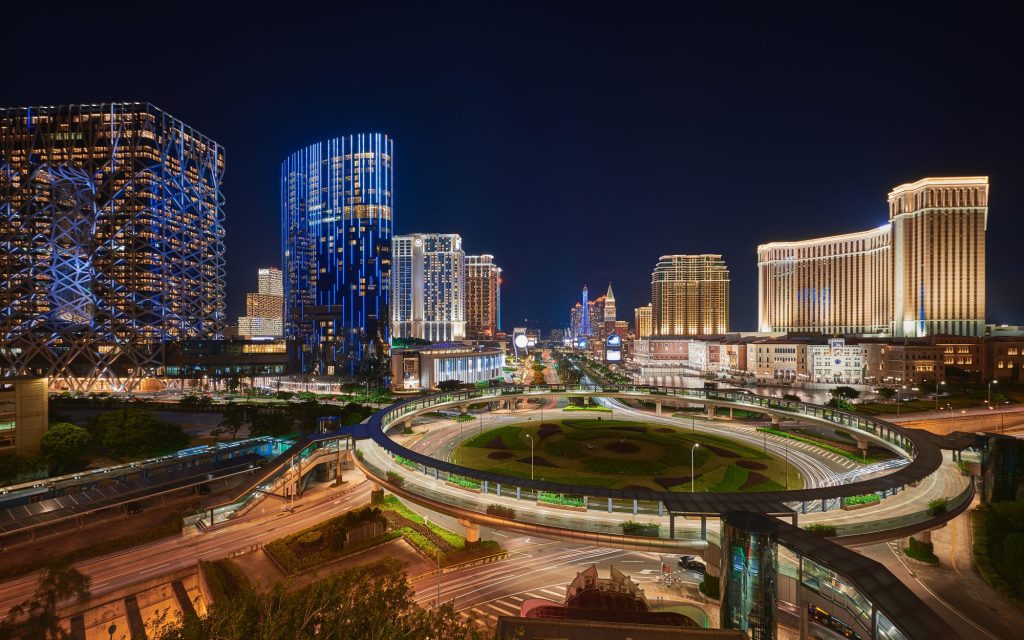
Ho said that the extensions could be granted under the existing law, even if the new legislation was not ready by June 2022.
In another speech, Ho reiterated this reassurance: “We will try our best to do our work
but we will carry out the tasks step by step to be in tandem with the healthy development of the gaming industry. The six gaming operators are very clear about this – the healthy development [of the sector] – and the government will not get them in trouble”.
Authorities have 180 days to provide a final report on a public consultation on the gaming industry that ended in October. A draft bill must then be submitted to the Legislative Assembly for scrutiny.
“The content of the public consultation is currently being summarised. […] the law will reveal issues related to the gaming industry, with the nine major directions for the sector clearly defined in the law,” Ho added.
Chief Executive Ho’s address sought to balance the urgent need to combat the effects of the pandemic and continue with efforts for short term recovery with key elements of a longer-term programme designed to take Macao’s development in new directions.
In his speech, Ho recognised that despite the negative social and economic impacts on Macao over the past couple of years, the city’s people remained calm and resilient, preserving social harmony. Macao has also been strongly supported by the central government which also contributed to social and regional stability. However, external factors now demand greater clarity over the precise implementation of national security legislation within the Macao SAR.
Diversification of the economy has been a central goal of government policy for some time and the effects of the pandemic on the gaming and tourism industries reinforces the logic of this shift. Internally this means the promotion of new sectors and start-ups, and providing the physical and digital infrastructure to support them; initiatives such as the Concordia Industrial Park on the one hand and the rolling out of 5G networks on the other should be seen in this light.
Outside the city proper, Macao’s links with the rest of China are decisive, particularly the exciting array of possibilities provided by closer cooperation with the Guangdong government over Hengqin Island and the Greater Bay Area.
Macao has experienced a difficult couple of years but its leadership message conveys a sense of optimism and self-assurance that the city is headed toward a new era of growth and prosperity.
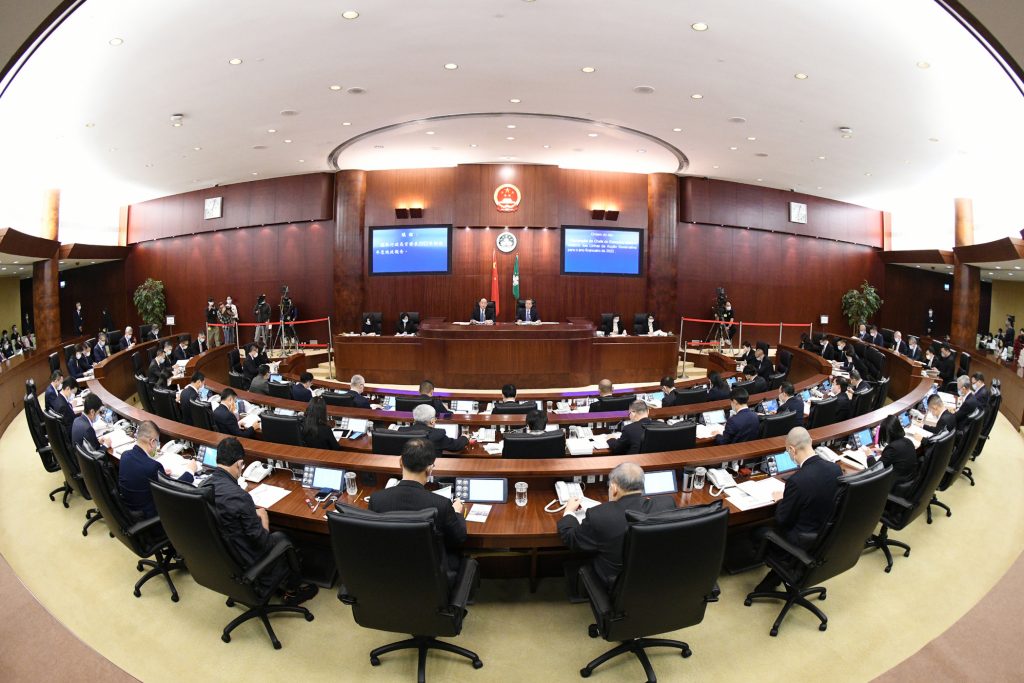
Major tasks for the government in 2022
Implementation of the Second Five-Year Plan for Economic and Social Development of the Macao SAR, spanning 2021 to 2025, and of the Master Plan of the Development of the Guangdong-Macao Intensive Cooperation Zone in Hengqin.
